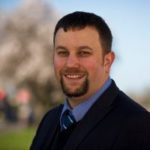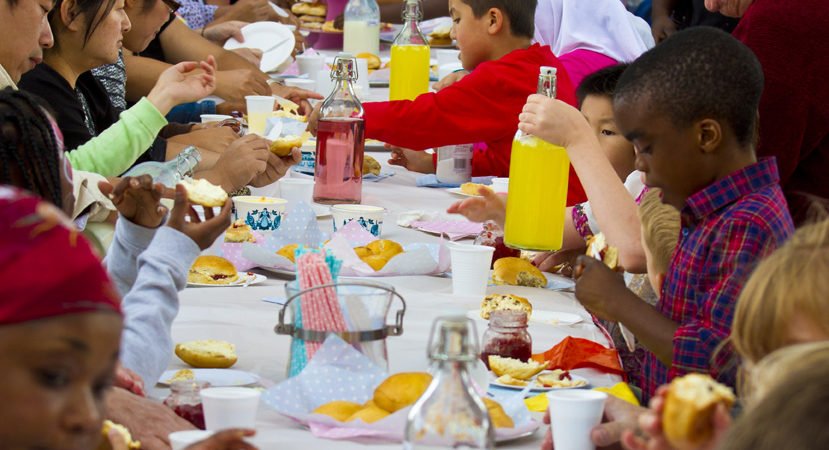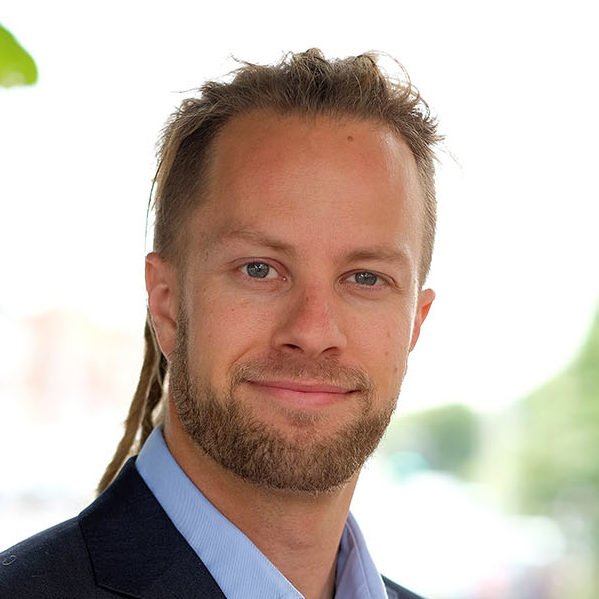The greatness of a community is most accurately measured by the compassionate actions of its members.
Coretta Scott King
Ibn Khaldun, the Arab philosopher, popularised the concept of asabiyyah عصبيّة. The idea that a community has a sense of shared purpose that link members of different social groups to one another.
Mpu Tantular, the 14th century Javanese poet, coined the term ‘unity in diversity’, a concept based on an understanding that differences enrich human interaction within a community.
The definition of a community is a group of people living in the same place or having a particular characteristic in common or the condition of sharing or having certain attitudes and interests in common.
In this piece, we ask members of the LifeLine family what their thoughts on community are.

Daniel
FaithAction

Anne
Champions Support Network

Georgia
SW!TCH
What does community mean to you?

Community is an extended family, a place you belong to outside of your home.

A group of people who relate to and aid each other. They share a certain level of outlook and aims between them.

Community is where people find a place of belonging, where they feel seen and valued, and both offer support to and accept support from others.
To me, it’s an inclusive space. In community, I would expect to find people who were very different in age, background and interests, but with a common willingness to engage with one another.
Who is in the LifeLine community?

The Lifeline community is really a ‘super-diverse’ community with a variety of groups related to our overall goal of ‘make a difference’.
I would call it a gathering of those who want to make a positive impact on the lives of the individual and the family, and to address and confront the systems that shape and effect our lives.

Our community is both our staff and the partners we work. And, for me, its the young people I work with and the contacts I make in the schools around the borough. That’s what makes Lifeline ‘LifeLine’. For me personally, I think church is a big part of it as well.

It’s not just about the team—it’s our volunteers, our beneficiaries across all our programmes and even their families too.
When we talk about helping LifeLine beneficiaries integrate into the community, what does that mean to you?

Communities are long term. The very nature of being a beneficiary means you are part of a programme, which usually exist only for a fixed period of time. But, if a programme is a catalyst for connecting you into community, you have a whole range of long-term opportunities to use and develop skills, make sustainable friendships, and ultimately have sources of help, advice and encouragement you can go back to when you need it.
Being in a community significantly increases the likelihood of positive steps you gained through being part of a funded programme being sustained and built upon. It gives you an opportunity to contribute and help others too, sometimes by formal volunteering, but also in all those small but deeply significant conversations and gestures. Things like these not only have a greater benefit to others but have a significant impact on our own well-being too.

It’s about helping isolated young people and parents, getting them engaged in our positive activities. And it’s meeting more people like them and, most importantly, having our young people become ambassadors and volunteering.

At FaithAction, the people we usually interact with are the faith leaders and faith groups we work with and advocate for; but this can also be acting as intermediaries with civic leaders and politicians and the bureaucracies that serve them.
How can we help to build, benefit and connect better with our community?

It’s important to know them; both their aspirations and dreams as well as their expectations. We need to be prepared to speak the truth and be prepared to speak out against the prevailing ‘wisdom’. We should also be envisioning and modelling the way we want to them.

We shouldn’t underestimate the power of a smile or a friendly greeting! Community starts from all those little interactions. We should be willing to invest those extra minutes in conversation with someone you don’t know or who you wouldn’t normally talk to. As we get to know one another, more and more opportunities arise!

How can our community contribute to LifeLine, should they lead, support, or promote us?

We need to listen to the community and truly hear what they want; but we need to make sure that their needs align with our own values. There’s no point delivering activities people don’t want.

You can get involved as a volunteer and share information about our projects with people you meet who might benefit from them.

By finding out what we’re doing—champion our work. Be a critical friend and help us reflect what works and what doesn’t. Highlight the opportunities that we might otherwise miss.



